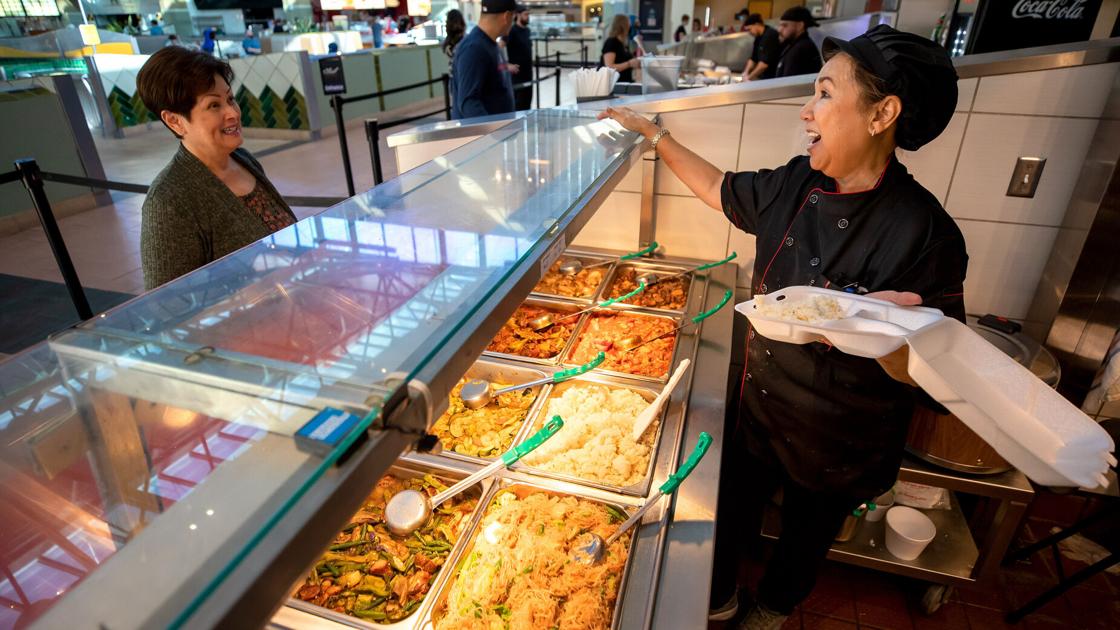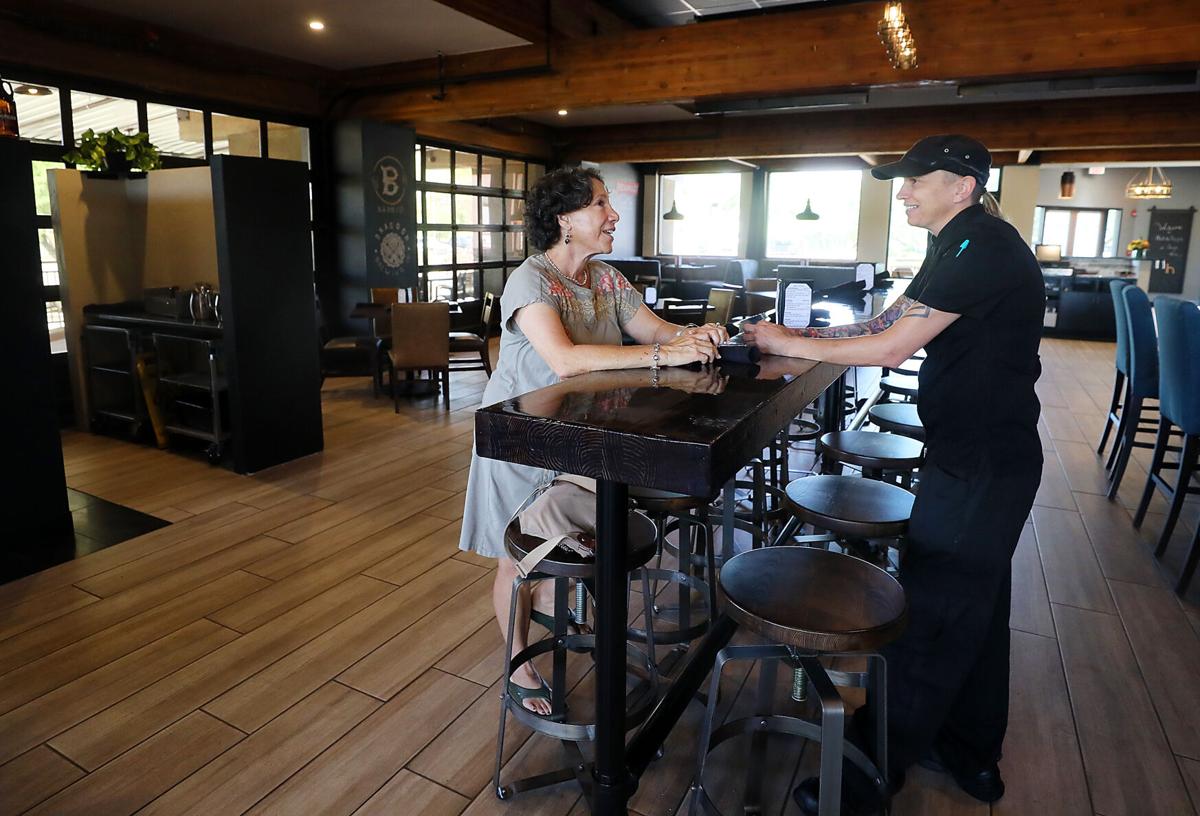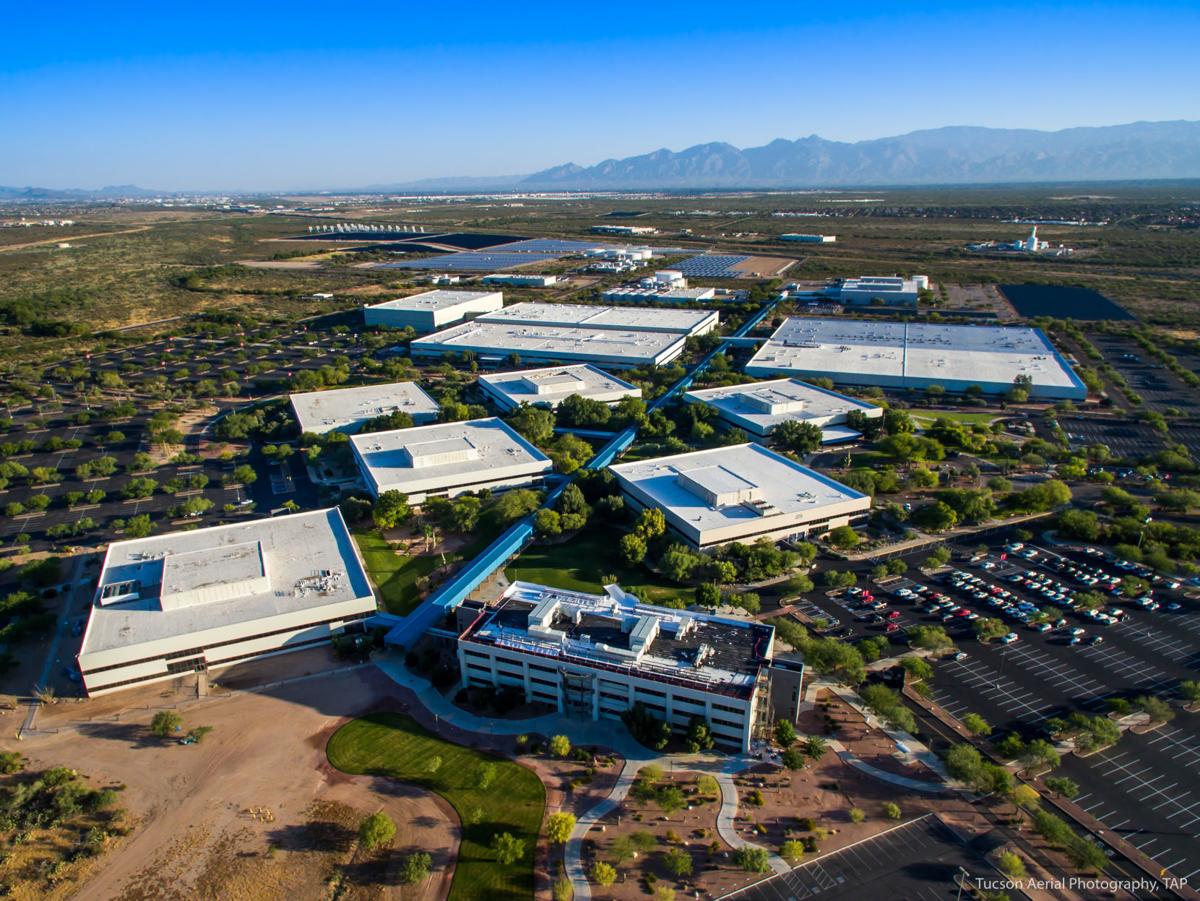[ad_1]
TUCSON (KVOA) – Food insecurity is a growing problem in Arizona.
In May, the Department of Economic Security reported that the total number of Arizonans enrolled in the Supplemental Nutrition Assistance Program was 16 percent higher than before the pandemic.
To combat food insecurity in the community, a local non-profit organization is working hard.
The Iskashitaa Refugee Network is a non-profit organization dedicated to integrating refugees in southern Arizona. It offers a year-round fruit and vegetable harvest program. Refugees from dozens of different countries work together to collect the food.
Refugees can keep whatever they choose, and the rest will be donated to the Tucson Community.
“Sixty percent of what we harvest annually, that’s about 150,000 pounds of fruit and vegetables, goes to tables, soup kitchens, shelters and schools,” said Barbara Eiswerth, founder and director of Iskashitaa. “That’s why it’s really important that we reduce food waste while increasing food security.”
Iskashitaa harvests for free on private properties and in public spaces. A tree or a dozen will do.
Noah Mickey-Colman has been using Iskashitaa to harvest trees on the Bermuda palms for almost seven years.
“All of this fruit would just fall to the ground and rot and scrap, and we’d spend a lot of time picking it up and throwing it in the trash,” Mickey-Colman said.
The harvesting program also offers refugees a valuable network to practice new skills and to find their way around their new city.
“I love learning English,” said Kidisti Fisehaye. “I have to speak English.”
From Eritrea, Fisehaye has been working with Iskashitaa for a year.
She served in the national service, the Eritrean military.
Many refugees can feel isolated in a new country. Eiswerth says they want to give back to their new communities, but it can be a challenge.
Professional certificates obtained in their home country may not be valid here without further training. The education of some refugees was interrupted by war and genocide.
“We always encourage building our English, professional skills, and cultural orientation, making sense of people, leaving their homes, interacting with Tucsonans, and learning the bus system,” said Eiswerth.
Bostan Ali spent nearly 400 hours with Iskashitaa. He is from Afghanistan and says the program will help him forget his worries.
“I like, I like, I like to work,” he said. “It is good for me.”
For Eiswerth, it’s about new bonds.
“The most important thing in my heart and head, I think, is the feeling of belonging to Tucson and giving back to the community,” said Eiswerth.
[ad_2]




/cloudfront-us-east-1.images.arcpublishing.com/gray/XT55LHRVUFAQFM6G5RXE4ZAWUY.jpg)






/cloudfront-us-east-1.images.arcpublishing.com/gray/XGU6SM7T4ND6XMX5IQROUZBVFY.jpg)

